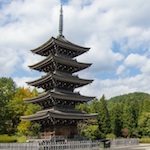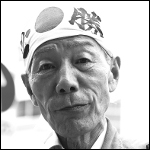| Hot Topics | |
|---|---|
Environmentalists pursue Japan's whalers
Sorry, I said something spastic, duplicating comments higher up the thread, and I couldn't delete so all I could do was edit like that.
End result is that I still said something spastic. Oh well.
End result is that I still said something spastic. Oh well.
-

wagyl - Maezumo
- Posts: 5950
- Images: 0
- Joined: Thu Mar 17, 2011 11:08 pm
- Location: The Great Plain of the Fourth Instance
wagyl wrote:Sorry, I said something spastic, duplicating comments higher up the thread, and I couldn't delete so all I could do was edit like that.
End result is that I still said something spastic. Oh well.
A picture tells a 1000 words:
[YT]20DwJJmZblI&feature=related[/YT]
-

Ganma - Maezumo
- Posts: 741
- Joined: Wed Sep 09, 2009 6:48 pm
They mean M84s right? how do civilians get a hold of that let alone allowed to use them on other civilians? the coast guard said that the whalers used them on the retards on the boat... i think i am missing something here.
meth and e will do that to you...
Ganma wrote:A picture tells a 1000 words:
[YT]20DwJJmZblI&feature=related[/YT]
meth and e will do that to you...
"I thought what I'd do was, I'd pretend I would pull out, but won't."
-

IparryU - Maezumo
- Posts: 4285
- Joined: Thu Jun 04, 2009 11:09 pm
- Location: Balls deep draining out
Coligny wrote:Ain't that a de-facto act of war ?
Why? Does France want to surrender?
"There are those that learn by reading. Then a few who learn by observation. The rest have to piss on an electric fence and find out for themselves!"- Will Rogers

-

Greji - Posts: 14357
- Joined: Fri Jun 25, 2004 3:00 pm
- Location: Yoshiwara
Greji wrote:Why? Does France want to surrender?
I think we still got some experimental lefftover nukes ready to blow in that part of th3 world...
IparryU wrote:They mean M84s right? how do civilians get a hold of that let alone allowed to use them on other civilians?
Wait

Shit got real !!??
-

Coligny - Posts: 21824
- Images: 10
- Joined: Sat Jan 17, 2009 8:12 pm
- Location: Mostly big mouth and bad ideas...
Coligny wrote:I think we still got some experimental lefftover nukes ready to blow in that part of th3 world...
Wait
Shit got real !!??
i should have been more specific then... M84 stun grenade
"I thought what I'd do was, I'd pretend I would pull out, but won't."
-

IparryU - Maezumo
- Posts: 4285
- Joined: Thu Jun 04, 2009 11:09 pm
- Location: Balls deep draining out
Coligny wrote:I think we still got some experimental lefftover nukes ready to blow in that part of th3 world...
Say what? The last time you tried a test in that part of the world, the only thing you guys hit was the "Rainbow Warrior," and that was because it just happened to be tied up to a dock in Wellington at the time, which was a good thing, 'cause you wouldn't even have hit that if it was moving!
"There are those that learn by reading. Then a few who learn by observation. The rest have to piss on an electric fence and find out for themselves!"- Will Rogers

-

Greji - Posts: 14357
- Joined: Fri Jun 25, 2004 3:00 pm
- Location: Yoshiwara
-

Mike Oxlong - Posts: 6818
- Joined: Wed Oct 20, 2004 5:47 pm
- Location: 古き良き日本
What a bullshit hypothesis. The whaling industry only needs the government to survive. Sure, a battle with enviromentalists secures them some (extra) security funds, but they'll never stop regardless of having to fight Greenpeace or Sea Shepherd.
This explains Japanese whaling far better, IMO:
Deep fears drive Japanese whaling
This explains Japanese whaling far better, IMO:
Deep fears drive Japanese whaling
...Japanese whaling is driven by fear – a fear of hardship and hunger that lurk deep in the national psyche. It is the same fear for the future that drove the people of this small, crowded, resource-poor island chain to seize mineral and energy rich Manchuria in the 1930s and to fight to the death for a Greater East Asia Co-Prosperity Sphere in the 1940s.
It is the same fear that today drives Japanese investment in arable land in Africa, mineral production in South America and fishing fleets that ply the distant waters of the Atlantic and the Mediterranean.
Japan relies for its very survival on its ability to secure access to the world's resources, from New Zealand apples to Middle Eastern oil. Any threat (real or imagined) to the free flow of foreign resources stirs national anxiety.
Whaling has come to symbolise those ancient fears and Japan's struggle against those foreign forces that would threaten its welfare. It is worth noting that Sea Shepherd activists are not only characterised in Japan as "eco-terrorists" but also as "foreign racists".
Buying the support of the smaller and poorer members of the IWC has no doubt cost more than the annual government-subsidised catch is worth. But the money and the damage that whaling does to Japan's global reputation is, from Tokyo's point of view, not relevant.
Whaling in the Great Southern Ocean has become a line in the sand. Japan must demonstrate a single-minded determination to defend its right to freely access the world's riches despite widespread opposition.
Defeat among the ice could prove to be the thin edge of the wedge. The battle could easily move to the world's tuna fishing grounds. The Japanese consume about half a million tonnes of the fish each year. International attention could also turn to Japan's annual slaughter of about 20,000 dolphins.
Surrender on the whaling front would be perceived by many in Japan as a loss of control over a destiny so heavily reliant on the produce of an unpredictable and sometimes hostile world. Whales, Australian coal or Caribbean bananas, the fears remain the same.
While it is possible to appreciate Japan's age-old concerns for survival in a historical sense, pandering to it as the IWC has done is not the answer.
For the sake of the global environment, Japan and the Japanese people must be convinced that in the 21st century only responsible membership of the world community can ensure resource security.
Unfortunately, removing a fear that is buried so deeply in the Japanese psyche will not be an easy task. While Sea Shepherd deserves our support, the headline-grabbing activities of environmental warriors that cause diplomatic embarrassment are hardly likely to bring about cultural change...
•I prefer liberty with danger to peace with slavery.•
-

Mike Oxlong - Posts: 6818
- Joined: Wed Oct 20, 2004 5:47 pm
- Location: 古き良き日本
I disagree with both theories.
Whaling is simply a huge industry that supplies a shitload of cushy amakudari jobs.
No whaling, no second life for legions of government employees and bureaucrats (especially from the Ministry of Agriculture, Forestry, and Fisheries). Of course a lot of regular employees stand to lose their livelihood too. They're going to fight tooth and nail for that.
Screw the deep psychological reasons, just follow the money.
(Although I guess that's sort of a variation of the first theory ...).
Whaling is simply a huge industry that supplies a shitload of cushy amakudari jobs.
No whaling, no second life for legions of government employees and bureaucrats (especially from the Ministry of Agriculture, Forestry, and Fisheries). Of course a lot of regular employees stand to lose their livelihood too. They're going to fight tooth and nail for that.
Screw the deep psychological reasons, just follow the money.
(Although I guess that's sort of a variation of the first theory ...).
_/_/_/ Phmeh ... _/_/_/
-

Yokohammer - Posts: 5090
- Joined: Tue Sep 30, 2008 6:41 pm
- Location: South of Sendai
Ehhh Mike, while your explanation gets into more detail and a larger picture, they still sound pretty similar regarding whaling.
Yoko, there is no doubt a lot of that in there as well.
Yoko, there is no doubt a lot of that in there as well.
SDH "cut your dick off! It's only going to get you in more trouble!"
-

matsuki - Posts: 16047
- Joined: Wed Feb 02, 2011 4:29 pm
- Location: All Aisu deserves a good bukkake
chokonen888 wrote:Ehhh Mike, while your explanation gets into more detail and a larger picture, they still sound pretty similar regarding whaling.
Yoko, there is no doubt a lot of that in there as well.
ya... it is money, and i bet many of the staff got good salaries while their fishermen hunt for "research" and whale meat.
office workers are all alike, they dont really do anything to make money for the company... they just drone and get paid. who gives a fuck what the company does, if you are getting paid losing your job to some auzie fuck heads will piss you off. like wise, some eluding japs killing animals for "research" may piss you off enough to ram a boat into their ship or you may donate monies so they can buy new toys...
old story... same news... no progress... just retards on several different vessels/boats...
"I thought what I'd do was, I'd pretend I would pull out, but won't."
-

IparryU - Maezumo
- Posts: 4285
- Joined: Thu Jun 04, 2009 11:09 pm
- Location: Balls deep draining out
I'm still waiting for some real violence. Ships in that part of the world have enough time staying afloat and the douche bags from both sides probably deserve the icy grave that awaits them.
SDH "cut your dick off! It's only going to get you in more trouble!"
-

matsuki - Posts: 16047
- Joined: Wed Feb 02, 2011 4:29 pm
- Location: All Aisu deserves a good bukkake
chokonen888 wrote:I'm still waiting for some real violence. Ships in that part of the world have enough time staying afloat and the douche bags from both sides probably deserve the icy grave that awaits them.
That is what I am waiting for... has FB written all over it.
"I thought what I'd do was, I'd pretend I would pull out, but won't."
-

IparryU - Maezumo
- Posts: 4285
- Joined: Thu Jun 04, 2009 11:09 pm
- Location: Balls deep draining out
Sea Shepherd stymies whaling trip by entangling rope in ship propeller
Activists of antiwhaling group Sea Shepherd Conservation Society on Sunday obstructed Japan's so-called research whaling in the Antarctic Ocean, hurling a rope at a whaling ship and twisting it around the ship's propeller, the Japanese Fisheries Agency said.
The activists also threw bottles containing butyric acid and hurled smoke candles at the Yushin Maru No. 2 during the incident which started at 7:20 a.m. and lasted for about two hours, the agency said.
The ship slowed down consequently, although none of its crew was injured, according to the agency.
The ship counteracted the Sea Shepherd actions by spraying water and issuing warnings, it added.
•I prefer liberty with danger to peace with slavery.•
-

Mike Oxlong - Posts: 6818
- Joined: Wed Oct 20, 2004 5:47 pm
- Location: 古き良き日本
Mike Oxlong wrote:Sea Shepherd stymies whaling trip by entangling rope in ship propeller
same story... different event... reminds me of my 2 boys fighting over some toy and both of them come to a stalemate and find something else to fight over...
big yawn...
"I thought what I'd do was, I'd pretend I would pull out, but won't."
-

IparryU - Maezumo
- Posts: 4285
- Joined: Thu Jun 04, 2009 11:09 pm
- Location: Balls deep draining out
IparryU wrote:same story... different event... reminds me of my 2 boys fighting over some toy and both of them come to a stalemate and find something else to fight over...
big yawn...
Let's not forget that eventually one will, if constantly picked on, go into rage mode...
SDH "cut your dick off! It's only going to get you in more trouble!"
-

matsuki - Posts: 16047
- Joined: Wed Feb 02, 2011 4:29 pm
- Location: All Aisu deserves a good bukkake
US judge won't halt anti-whaling group Sea Shepherd
A US federal judge in Seattle has declined to immediately restrain the activities of an anti-whaling group.
Judge Richard Jones said he would issue a written ruling later, but that he's inclined to deny a request for a preliminary injunction made by Japanese whalers against the Sea Shepherd Conservation Society...
•I prefer liberty with danger to peace with slavery.•
-

Mike Oxlong - Posts: 6818
- Joined: Wed Oct 20, 2004 5:47 pm
- Location: 古き良き日本
chokonen888 wrote:Let's not forget that eventually one will, if constantly picked on, go into rage mode...
ya... my younger son will bite when he cant get his way. but then my older son resorts to bashing him in the head with the nearest toy he can grab...
"I thought what I'd do was, I'd pretend I would pull out, but won't."
-

IparryU - Maezumo
- Posts: 4285
- Joined: Thu Jun 04, 2009 11:09 pm
- Location: Balls deep draining out
The headline makes it sound like the Japanese hunt the biggest creature on earth to compensate for something being short...
Saboteurs blamed as Japan whale catch falls short
Saboteurs blamed as Japan whale catch falls short
Anti-whaling saboteurs have cut the number of animals Japan was able to harpoon to 267, less than a third of the intended haul, the government said Friday as it announced the end of this season's hunt.
Japan's Fisheries Agency said the fleet was on its way home from the Antarctic "on schedule", but admitted the catch was way down on expectations.
Whalers killed 266 minke whales and one fin whale, the agency said, well below the approximately 900 they had been aiming for when they left Japan in December.
"The catch was smaller than planned due to factors including weather conditions and sabotage acts by activists," an agency official said. "There were definitely sabotage campaigns behind the figure."
Militant environmentalist group Sea Shepherd had pursued the Japanese fleet for much of the season.
The group has hurled stink bombs at the boats and used ropes to try to tangle their propellers in a series of exchanges, which have seen the whalers retaliate with water cannon.
In the 2010-2011 season, Japan cancelled the hunt after killing only 172 whales because of harassment by environmentalists...
•I prefer liberty with danger to peace with slavery.•
-

Mike Oxlong - Posts: 6818
- Joined: Wed Oct 20, 2004 5:47 pm
- Location: 古き良き日本
Militant environmentalist group Sea Shepherd had pursued the Japanese fleet for much of the season.
The group has hurled stink bombs at the boats and used ropes to try to tangle their propellers in a series of exchanges, which have seen the whalers retaliate with water cannon.
"Militant" indeed
Stink bombs and water cannons?
IparryU wrote:reminds me of my 2 boys fighting
SDH "cut your dick off! It's only going to get you in more trouble!"
-

matsuki - Posts: 16047
- Joined: Wed Feb 02, 2011 4:29 pm
- Location: All Aisu deserves a good bukkake
-

gaijinpunch - Maezumo
- Posts: 766
- Joined: Sat Nov 06, 2010 10:40 am
gaijinpunch wrote:And some heavy swearing.
so funny how it is big boat vs little boat with guys yelling and getting all fired up.
seriously, someone needs to take some crazy aggressive action soon.. this shit has been boring for way too long.
[YT]HxWCAJS7Co8[/YT]
"I thought what I'd do was, I'd pretend I would pull out, but won't."
-

IparryU - Maezumo
- Posts: 4285
- Joined: Thu Jun 04, 2009 11:09 pm
- Location: Balls deep draining out
Who is online
Users browsing this forum: Google [Bot] and 8 guests

